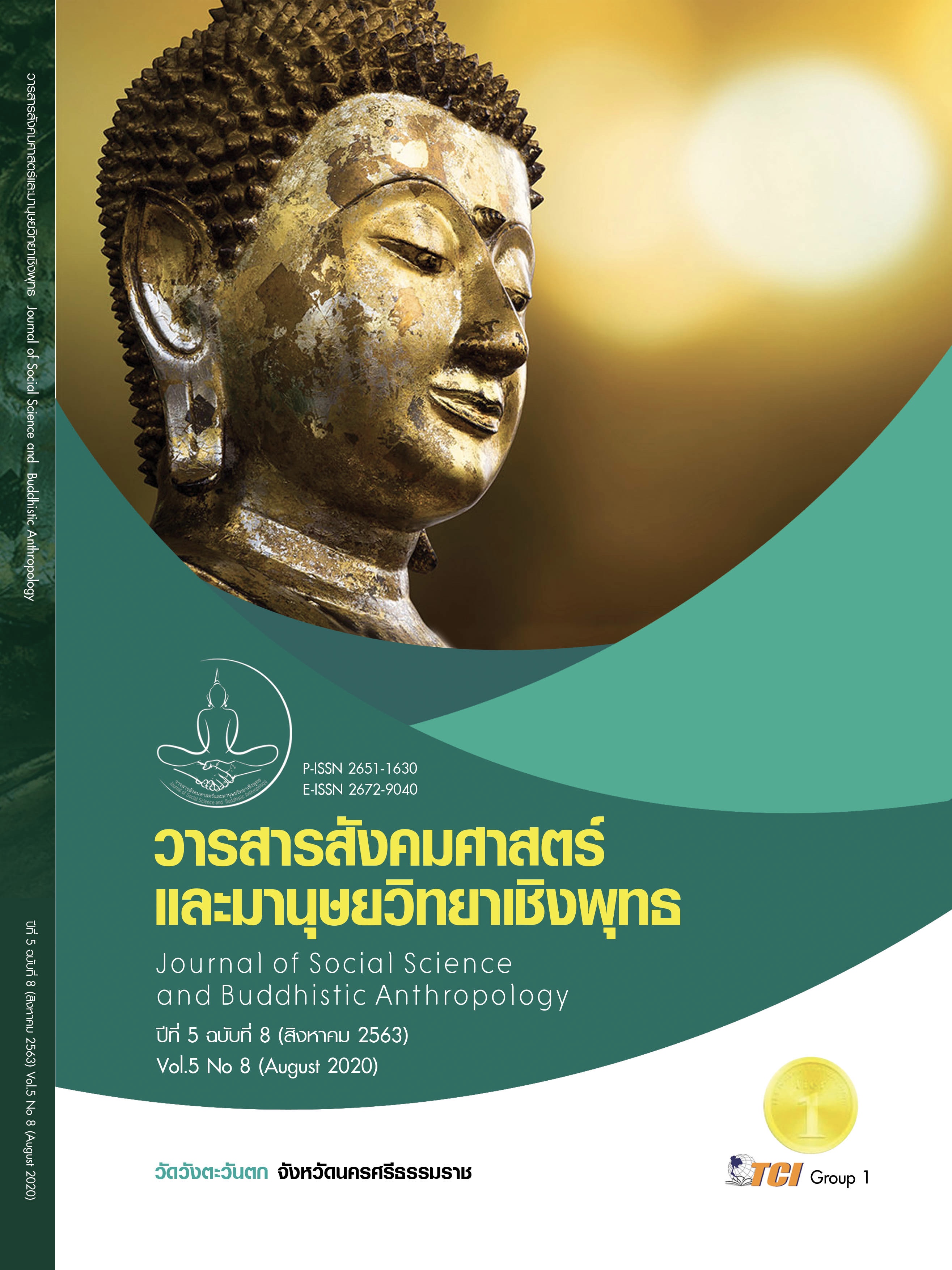ANTECEDENT INFLUENCING CONFIDENCE IN THE SUCCESS OF SMALL AND MEDIUM SIZED ENTERPRISES IN THE DIGITAL AGE OF THAILAND 4.0
Keywords:
Confidence in the Success of SMEs, Online Store Management, Power of Social Media, Marketing Strategies, Brand Ambassador ManagementAbstract
The objectives of this research were to study: 1) the levels of confidence in success of SMEs in the age of Digital Thailand 4.0, online store management, power of social media, marketing strategies and brand ambassador management; 2) the influences of online store management, power of social media, marketing strategies and brand ambassador management on the confidence in the success of SMEs in the age of Digital Thailand 4.0 and 3) the guidance for SMEs accomplished. This research employed a mixed research methodology combining quantitative and qualitative methods. In the quantitative research component selected by stratified sampling. The sample size was determined based the criterion of 20 times the 18 observed variables which equaled not less than 360. Data were collected with the use of a questionnaire and analyzed with a structural equation model. As for the qualitative research part, in-depth interviews were conducted with 12 key informants. The mixed research findings showed that: 1) the confidence in success of SMEs in the age of Digital Thailand 4.0, online store management, power of social media, marketing strategies and brand ambassador management were all rated a high level; 2) power of social media had the overall greatest influence on the confidence in the success for SMEs in the age of Digital Thailand 4.0, followed by online store management, brand ambassador management and marketing strategies, respectively and 3) The guidance for SMEs accomplished by e-business system, e-market place, e-payment and e-banking as well as establishing reputation for their brands and creating their brand marks.
References
คำนาย อภิปรัชญาสกุล. (2550). การจัดการขนส่ง. กรุงเทพมหานคร: โฟกัสมีเดีย แอนด์ พับลิชชิ่ง.
นภาวรรณ คณานุรักษ์. (2554). กลยุทธ์การตลาด. กรุงเทพมหานคร: บริษัท ทริปเพิ้ล กรุ๊ป จำกัด.
เนตร์พัณณา ยาวิราช. (2556). การจัดการเปลี่ยนแปลงพัฒนาองค์กร. กรุงเทพมหานคร: บริษัท ทริปเพิ้ล กรุ๊ป จำกัด.
ภัทรภานุ ไชยเชียงของ และ นภวรรณ ตันติเวชกุล. (2557). กลยุทธ์การสร้างและการสื่อสารตราสินค้า รูปแบบการดำเนินชีวิต. วารสารการประชาสัมพันธ์และการโฆษณา, 7(2), 71-90.
สัญชัย ลั้งแท้กุล. (2561). การจัดการดําเนินงาน. กรุงเทพมหานคร: สํานักพิมพ์แห่งจุฬาลงกรณ์มหาวิทยาลัย.
เสรี วงษ์มณฑา และชุษณะ เตชคณา. (2560). การตลาด 4.0 ในบริบทประเทศไทย 4.0. วารสารเศรษฐศาสตร์และนโยบายสาธารณะ, 8(15), 1-16.
หมะหมูด หะยีหมัด และก่อพงษ์ พลโยราช. (2556). ความภักดีต่อตราสินค้าในมิติเชิงทัศนคติและมิติเชิงพฤติกรรม. วารสารบริหารธุรกิจ เศรษฐศาสตร์และการสื่อสาร, 8(1), 67-73.
Carol H. Weiss. (1972). Evaluating Action Programs: Readings in Social Action and Education. Boston: Allyn and Bacon.
Gliem, J. & Gliem, R. (2003). Calculating, interpreting, and reporting Cronbach’s alpha reliability coefficient for Likert-type scales. Columbus: 2003 Midwest Research to Practice Conference in Adult, Continuing, and Community Education.
Johnson & Scholes. (1999). Exploring Cooperate Strategy. London: Prentice Hall.
Linderman, R. H., Merenda, P. F., & Gold, R. Z. (1980). Introduction to Bivariate and Multivariate Analysis. Glenview : Scott Foresman & Co.
O. C. Ferrell & Michael D. Hartline. (2011). Marketing strategy. Mason: South-Western Cengage Learning.
Savrula & Kilic. (2011). E-Commerce As An Alternative Strategy In Recovery From The Recession. Procedia - Social and Behavioral Sciences, 24(2011), 247-259.
Yasmin A., Tasneem S. & Fatema K. (2015). Effectiveness of Digital Marketing in the Challenging Age: An Empirical Study. International Journal of Management Science and Business Administration, 1(5), 69-80.









